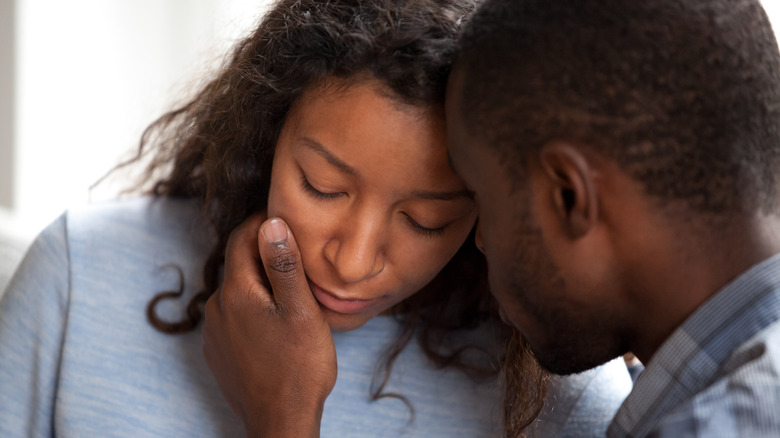How Common Are Miscarriages?
Trigger warning: The following article contains language about miscarriage and pregnancy loss.
Despite popular belief, any pregnancy can end spontaneously. The World Health Organization defines a pregnancy loss before 28 weeks as a miscarriage, and after 28 weeks as a stillbirth.
Youth, wealth, and good health are no protection against a pregnancy's sudden end, and neither is a successful previous pregnancy. According to the Mayo Clinic, about half of all miscarriages happen because the fetus has chromosomal abnormalities: extra chromosomes or missing chromosomes. Occasionally, a pregnant person may have a health condition that causes a miscarriage, such as uncontrolled diabetes, infections, hormonal problems, uterus or cervix problems, or thyroid disease. Usually, though, a miscarriage's cause remains unknown.
Celebrities have been talking more about their experiences in recent years, such as Meghan Markle opening up about her miscarriage and Jessie J revealing details about her pregnancy loss. But there's still such a taboo surrounding the topic that many people are left feeling like they're the only person who has gone through this heartbreaking experience. This leads to the question: Just how common are miscarriages?
Miscarriages occur frequently
Miscarriages happen far more often than you might think. Of known pregnancies, March of Dimes estimates that 10% to 15% end in miscarriage, while the Mayo Clinic suggests the percentage is slightly higher: 10% to 20%. But the majority of miscarriages happen in first trimester of a pregnancy, often before the pregnant person even realizes they're expecting.
Evolutionary geneticist William R. Rice has studied this topic carefully. He examined a wide range of databases and published studies, trying to calculate how often miscarriages (referred to as spontaneous abortions in medical literature) occurred compared to how often babies were born. He concluded that miscarriage is the end result for more than half of all fertilized eggs.
Miscarriage, Rice wrote in a 2018 paper, is "a natural and inevitable part of human reproduction at all ages" and "the most common outcome of conception across a woman's lifetime." He told New Scientist, "It's not an abnormality. It's the norm."
The taboo against talking about miscarriages
Given just how many pregnant people have experienced miscarriages, our reluctance to talk about them is even more confounding. The taboo is strong all around the world (per World Health Organization), and it often leaves those experiencing such a tremendous loss feeling like they're struggling alone — or like they're breaking social rules if they do discuss a pregnancy that has ended suddenly.
"I was very open with people about what had happened, though I felt a little embarrassed about my compulsion to be honest," Hannah Powell Fryer confessed in an essay for Stuff. "It felt abnormal to want to be so open about a miscarriage, it's usually shrouded in secrecy and silence. I got a vulnerability hangover every time I told the story."
Similarly, Amy Webb wrote in The Atlantic, "I've been pregnant nine times, and I have one child. For years, I never told anyone about my miscarriages, because as a professional American woman, I'd been indoctrinated to mute the implications of my gender."
Discussing the topic has become even more fraught recently in the wake of the Supreme Court's Roe v. Wade reversal. Experts warn that one likely consequence of this decision will be limits on access to miscarriage care, which will make an already uncomfortable subject even more taboo.


